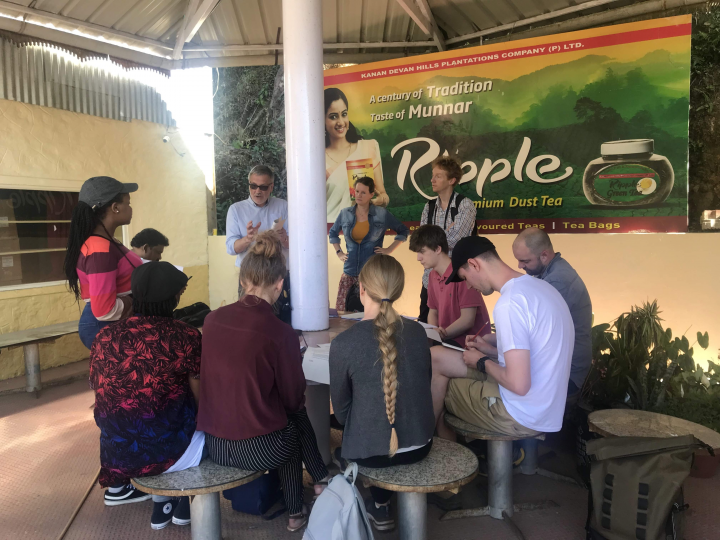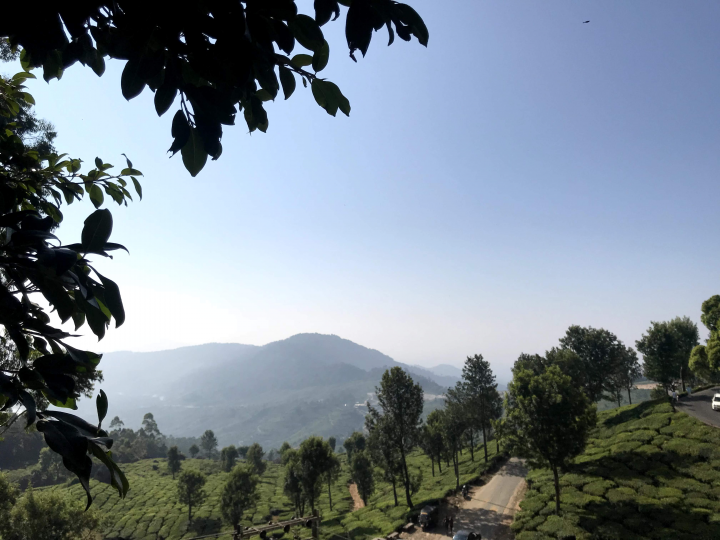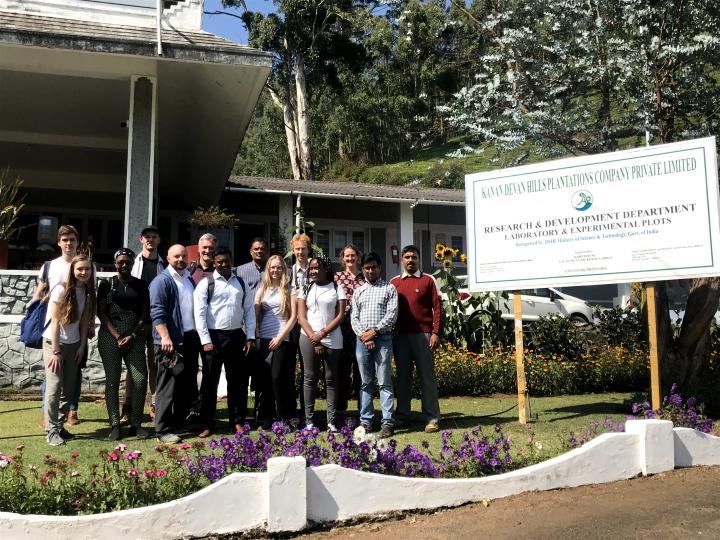The Journey of Tea
Students from the Global Academy of Agriculture and Food Security travelled to India where they explored the journey of tea from plantation to teapot.
Many of us drink tea on a regular basis but not all of us think about where the tea comes from. Thanks to a Student Experience Grant a group of students from the Global Academy of Agriculture and Food Security got an opportunity to discover just how a cup of tea arrives in our kitchen and what its sustainability label means.
Sustainability matters
The world population is expected to reach 9.7 billion in 2050. Feeding these growing numbers well, while protecting the planet on which we all depend, is one of the biggest challenges the world is currently facing. In 2016, the University established the Global Academy of Agriculture and Food Security to tackle this challenge through world-leading education, research and engagement.

Tea trek
Earlier this year, seven students from the Academy, specialising in global agriculture and food security, returned from a study trek to India where they explored its tea industry. The field trip was led by lecturers from the University and the aim was to identify social, economic and environmental issues and their impact on a sustainable supply chain.
Tea is the world’s most consumed drink, after water. It’s India's primary beverage, with almost 85% of total households in the country consuming tea. The country is also the world's largest producer and consumer of tea, accounting for 27% of the world tea production. India was therefore the place to be if the group wanted to learn about the journey of tea from the production stage all the way to the teapot.

Although the quality of our lectures is superb there is only so much you can learn about agricultural production, processing and distribution from a classroom.
From plantations to Mumbai
The tea trek included a stay at a sustainably certified tea plantation in Munnar, a town in Southern India, and visits to key organisations and companies in Mumbai.
In Munnar, students first visited a tea museum where they learned about the history and global relationship of tea production. The trek then took them to Kanan Devan Hills tea plantation, where they explored the product from grassroots to consumer, and learned about sustainable farming.

We witnessed first-hand how adopting a sustainable approach is possible in the Munnar tea plantations and that these approaches are needed around the world for the benefit of the planet.
Having the opportunity to take students to a Rainforest Alliance certified tea plantation, and discuss these processes with those who implement them enabled us to take the teaching to a completely different level.
The group then teamed up with Somaiya Vidyavihar University, a partner institution, and five students from their business and social science programmes joined the Edinburgh visitors in Mumbai. Through the partner university’s existing industrial links, students got an opportunity to visit companies and organisations, where they learned how market trends impact the agriculture community. These included Tata Global Beverages and the Indian Tea Board.
The students also conducted a survey of tea drinking habits amongst the public, with translation provided by the Somaiya peers.
From a personal point of view, the thing I found most rewarding was watching the confidence of individual students grow over the course of the tour and the way in which they came together and worked as a group.
Bonding
The aim of the trek was to help students better understand the sustainability of tea production, however as Lovisa points out, the benefits to student experience extended beyond learning and teaching.
Spending time with lecturers and students outside the university and in a completely different setting allowed me to get to know everyone more deeply and personally. This could only have happened on a journey like this.
Video from the trek
Watch how the field trip enhanced the students’ experience.
- Video: The Journey of Tea
- Students from the Global Academy of Agriculture and Food Security travelled to India where they explored the journey of tea from plantation to teapot.
Alumni supporting students
The journey of tea was enabled by alumni who support the Student Experience Grants scheme. Gurpreet Grewal-Kang, Student Recruitment Manager at Easter Bush campus, pitched the idea of the tea trek with one of the students last year. They were awarded £4950 to help with the cost of the flights for students.
On every day of the trip I realised how much work the organisers put into providing us with the best experience possible and none of it would have been possible without the generous funds from alumni.
Links
Global Academy of Agriculture and Food Security

